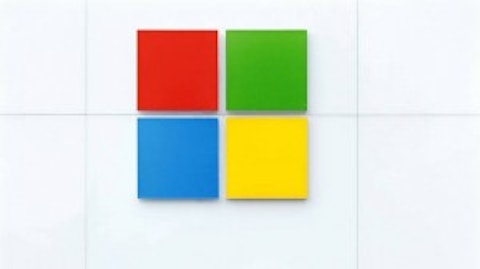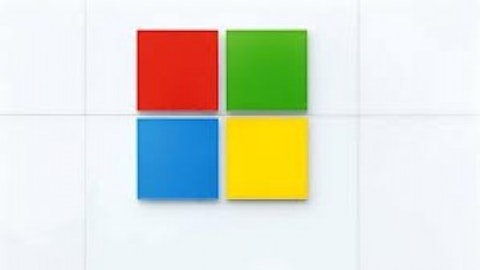Investors often fixate on a single narrative during earnings season, throwing otherwise solid companies under the bus if a solitary figure doesn’t meet some imaginary expectation made up by Wall Street.

Three companies that aren’t going away
Microsoft Corporation (NASDAQ:MSFT)’s Windows division sales fell 6% on a non-GAAP basis in the second quarter, but when compared to an 11.4% decline in PC sales, that’s not all that bad. What’s being overlooked are two larger businesses for Microsoft Corporation (NASDAQ:MSFT): Server and Tools and Microsoft Business. Server and Tools sales were up 9% in the second quarter and the Microsoft Business division saw a 14% jump in sales. Even if we pull out sales from onetime upgrade offers, Microsoft Corporation (NASDAQ:MSFT)’s sales were up 3% for the second quarter, not bad considering how bad the PC market is. I’m not saying Microsoft Corporation (NASDAQ:MSFT) is a high-growth company anymore, but projecting its demise is very premature.
Intel Corporation (NASDAQ:INTC)’s story is even more interesting. Revenue was down 5.1% in the second quarter due to a 7.5% decline in PC client sales, the company’s biggest segment, but it may be at an inflection point as it tries to get into mobile. Revenue was up 2% from a quarter ago and next quarter management expects sequential revenue growth of 1.6% to 9.4%. After winning the Samsung Tab 3, the company may be gaining momentum in mobile with a 14 nm chip coming out next year.
Apple Inc. (NASDAQ:AAPL) is another company that can’t seem to wow investors, even with $6.9 billion in quarterly income. A 1% increase in sales won’t get anyone excited, but with a dominant position in smartphone and tablets and a balance sheet that would make most countries drool, Apple Inc. (NASDAQ:AAPL) isn’t going anywhere anytime soon. Let’s not forget the investors in Samsung were also disappointed with sales this quarter, so when we put Apple Inc. (NASDAQ:AAPL)’s slowdown into perspective, it’s not so bad.
Value stocks in tech
The biggest reason I think investors need to chill out about earnings from Microsoft Corporation (NASDAQ:MSFT), Intel Corporation (NASDAQ:INTC), and Apple Inc. (NASDAQ:AAPL) is the incredible value at which these stocks trade. Below, I’ve outlined that Microsoft and Apple Inc. (NASDAQ:AAPL) both trade with P/E ratios below 10 after accounting for cash and Apple Inc. (NASDAQ:AAPL)’s trailing P/E ratio of 7.5 is usually reserved for dying companies. Intel Corporation (NASDAQ:INTC) is a bit more expensive, but it pays a hefty 3.9% dividend and still has a choke hold on the PC chip business, even if it’s in slow decline.
| Market Cap | Net Cash | Net Income (ttm) | P/E Ratio Ex-Cash | Dividend Yield | |
|---|---|---|---|---|---|
| Microsoft | $265.3 billion | $61.4 billion | $21.9 billion | 9.3 | 2.9% |
| Intel | $116.4 billion | $9.3 billion | $9.5 billion | 11.2 | 3.9% |
| Apple | $411.8 billion | $129.7 billion | $37.7 billion | 7.5 | 2.8% |
No time to panic
These are no longer the growth stocks they used to be, but the market has already priced no growth into shares. We know that the PC market is in decline, so slow Windows, chip, and Mac sales shouldn’t surprise anyone. The reaction to earnings was overdone and, over the long term, I think investors will settle down and push each of these industry titans higher.
The article Tech Investors Need a Chill Pill originally appeared on Fool.com and is written by Travis Hoium.
Fool contributor Travis Hoium manages an account that owns shares of Apple, Microsoft, and Intel. The Motley Fool recommends and owns shares of Apple and Intel. It also owns shares of Microsoft.
Copyright © 1995 – 2013 The Motley Fool, LLC. All rights reserved. The Motley Fool has a disclosure policy.




